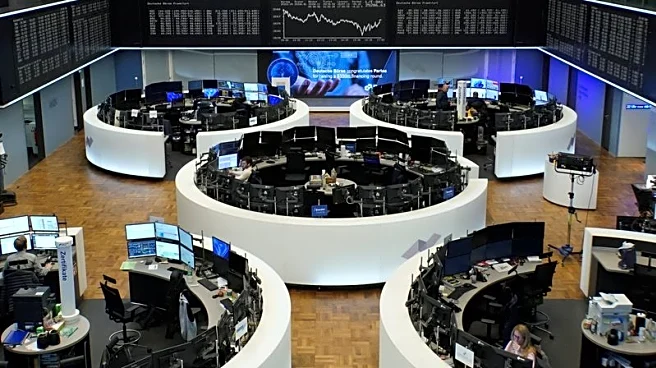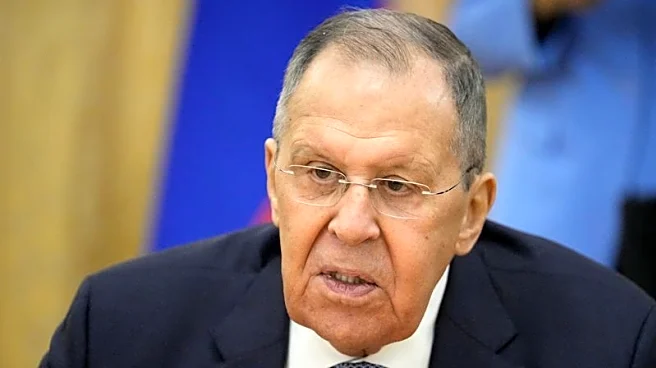Rapid Read • 9 min read
The United States and Russia are facing the potential end of their last remaining nuclear arms pact, New START, which is set to expire in February. This development follows Russia's recent decision to end self-imposed restrictions on missile deployments previously covered by the now-defunct Intermediate-range Nuclear Forces Treaty. The termination of these agreements has raised concerns about a new arms race, as both nations may increase their nuclear arsenals. Experts highlight the lack of trust between the two countries, making new bilateral agreements on nuclear weapons unlikely. The situation is further complicated by China's growing nuclear capabilities, which could drive the U.S. to develop more nuclear and conventional weapons.
AD
The expiration of New START and the absence of new arms control agreements could lead to increased nuclear tensions between the U.S. and Russia, reminiscent of Cold War dynamics. This situation poses a significant risk to global security, as the potential for nuclear conflict may rise. The lack of trust between the two nations hinders diplomatic efforts to negotiate new treaties, leaving the world vulnerable to an arms race. Additionally, China's emergence as a nuclear peer adds complexity to the geopolitical landscape, potentially prompting the U.S. to expand its arsenal to counter perceived threats. The broader implications include heightened military spending and strategic instability.
With New START set to expire soon, the U.S. and Russia may face increased pressure to engage in diplomatic negotiations to prevent an arms race. However, the current lack of trust and geopolitical tensions make new agreements unlikely. The U.S. may focus on addressing threats from other nuclear-capable nations, such as China, which could further complicate relations with Russia. The international community may call for renewed efforts to establish multilateral treaties to prevent the proliferation of nuclear weapons and ensure global security. Observers will closely monitor developments in U.S.-Russia relations and China's nuclear strategy.
The potential end of nuclear arms control agreements between the U.S. and Russia highlights the enduring influence of Cold War-era thinking on contemporary geopolitics. Despite the expiration of treaties, the concept of mutually assured destruction may still serve as a deterrent against nuclear conflict. The situation underscores the need for innovative diplomatic approaches to address modern security challenges. Additionally, the growing role of China in nuclear dynamics may shift traditional power balances, prompting a reevaluation of global arms control strategies. The ethical implications of nuclear proliferation and the responsibility of global leaders to prevent conflict remain critical considerations.
AD
More Stories You Might Enjoy











